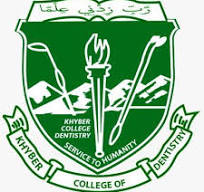ALTERATIONS OF CIRCULATING TUMOUR DNA AS A BIOMARKER IN ORAL SQUAMOUS CELL CARCINOMA: A SYSTEMATIC REVIEW
DOI:
https://doi.org/10.33279/jkcd.v12i2.61Keywords:
OSCC, ctDNA, Biomarker, Mutation, AlterationsAbstract
Objective:To investigate the literature on genetic abnormalities of DNA in blood and saliva from OSCC patients, to report diagnostic accuracy, and to address the possibilities for a diagnostic or recurrence monitoring test based on circulating tumor DNA (ctDNA).
Methods and materials:A systematic search was performed in PubMed for articles published between 2013 and 2021. The search terms used were “circulating tumor DNA in oral squamous cell carcinoma”.
Results:We found eleven relevant studies, of which four (36.36%) prospective population studies were included. In all studies ctDNA were used as biomarker in OSCC. Two studies were looked into ctDNA somatic and methylated DNA mutations in OSCC. Another study found 90% of the ctDNA alteration and one study identifi ed PD-L1gene, which plays an important role in primary cancers based on tumour size, as well as disease-specific survival.
Conclusion: This study concluded that the use of ctDNA as biomarkers in OSCC clinical routine will help to establish consistent strategies for the early detection of cancer lesions enable early prevention and support the development of targeted therapies.
Downloads
Published
How to Cite
Issue
Section
License
Copyright (c) 2022 Samrina Mohammad, Ihsan Ullah, Asif Ali, Umer Farooq, Khurshid Ali, Sabreen Hassan, Muhammad Uzair Khan

This work is licensed under a Creative Commons Attribution-NonCommercial-NoDerivatives 4.0 International License.
You are free to:
- Share — copy and redistribute the material in any medium or format
- Adapt — remix, transform, and build upon the material
- The licensor cannot revoke these freedoms as long as you follow the license terms.
Under the following terms:
- Attribution — You must give appropriate credit , provide a link to the license, and indicate if changes were made . You may do so in any reasonable manner, but not in any way that suggests the licensor endorses you or your use.
- NonCommercial — You may not use the material for commercial purposes .
- No additional restrictions — You may not apply legal terms or technological measures that legally restrict others from doing anything the license permits.










